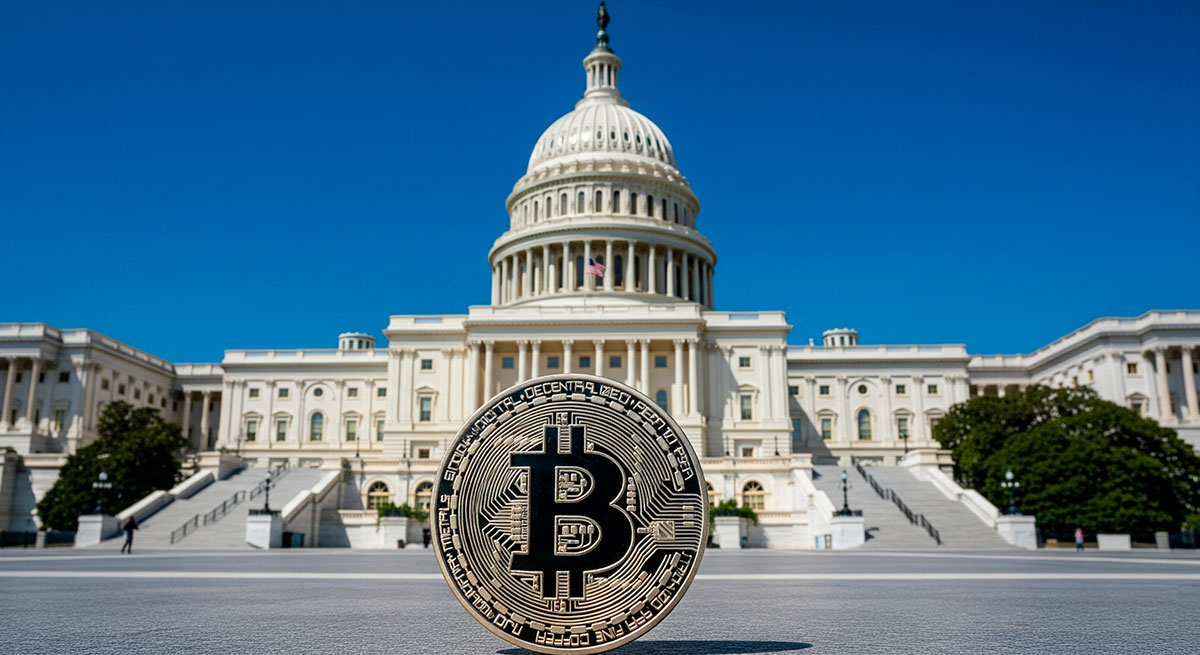La histórica legislación sobre stablecoins aprobada en Washington genera un terremoto en la industria global. Mientras las grandes firmas aplauden la claridad, proyectos emergentes temen por su supervivencia.
WASHINGTON D.C. - El murmullo que recorría los pasillos del Capitolio durante meses se ha convertido en un estruendo que resuena en todos los rincones del mercado de activos digitales. La aprobación de la "Guiding and Establishing National Innovation for U.S. Stablecoins Act", bautizada con el acrónimo "GENIUS", ha marcado el inicio de una nueva era para las criptomonedas, una donde el Tío Sam ha decidido tomar asiento en la mesa y dictar las reglas del juego.
La ley, la primera de su envergadura en ser ratificada en Estados Unidos, establece un marco federal para la emisión y supervisión de las stablecoins, esos activos digitales diseñados para mantener una paridad con el dólar. A partir de ahora, solo las instituciones depositarias aseguradas y ciertas entidades no bancarias que cumplan con estrictos requisitos de la Reserva Federal podrán emitir estas monedas. Se exigen, además, auditorías mensuales de las reservas, que deben estar compuestas exclusivamente por efectivo o equivalentes de efectivo, como bonos del Tesoro a corto plazo.
"Hemos puesto fin a la era del 'salvaje oeste' de las stablecoins", declaró el senador Mark Warner (D-VA), uno de los impulsores de la ley, en una rueda de prensa. "Esta legislación protege a los consumidores, salvaguarda la estabilidad de nuestro sistema financiero y, crucialmente, asegura que la innovación en torno al dólar digital ocurra bajo un paraguas regulatorio estadounidense, no en jurisdicciones opacas".
Reacciones encontradas en la industria
La reacción de la industria ha sido un reflejo de su propia diversidad. Gigantes como Circle, emisor de la popular stablecoin USDC, han calificado la ley como un "hito monumental" que proporciona la claridad necesaria para la adopción masiva. "Ahora podemos competir en igualdad de condiciones con el sistema financiero tradicional y llevar los beneficios de los pagos digitales a una escala global con la confianza que brinda la regulación estadounidense", comentó un portavoz de la compañía.
Sin embargo, el ambiente es muy diferente entre las startups y los proyectos de finanzas descentralizadas (DeFi). Para muchos, los costes de cumplimiento y los requisitos de capital que impone la "Ley GENIUS" son una barrera de entrada insalvable.
"Es una ley escrita por y para los grandes bancos y las corporaciones ya establecidas", lamenta en una entrevista para este medio la fundadora de un protocolo DeFi emergente, que prefiere mantener el anonimato. "Están utilizando la 'protección al consumidor' como una excusa para ahogar la competencia y centralizar un ecosistema que nació para ser descentralizado. Esto no es innovación, es consolidación de poder".
La onda expansiva ya se siente a nivel global. En Europa, donde la regulación MiCA (Markets in Crypto-Assets) ya está en vigor, los reguladores observan con atención. Fuentes del Banco Central Europeo indican que, si bien se valora la coordinación, la agresividad de la ley estadounidense podría provocar una "carrera regulatoria". El temor es que el dólar, a través de las stablecoins reguladas, refuerce aún más su hegemonía en el sistema financiero digital, dejando a otras divisas como el euro en una posición secundaria.
El futuro inmediato se presenta como un campo de pruebas. Todos los ojos están puestos en qué entidades obtendrán las primeras licencias y cómo responderá el mercado DeFi. La pregunta que flota en el aire es si esta ley logrará su doble objetivo de fomentar la innovación y proteger a los usuarios, o si, por el contrario, habrá sacrificado el espíritu disruptivo de las criptomonedas en el altar de la estabilidad financiera tradicional.

































